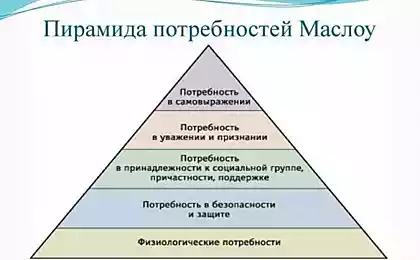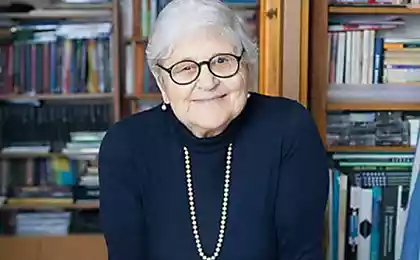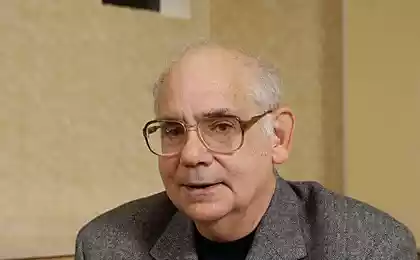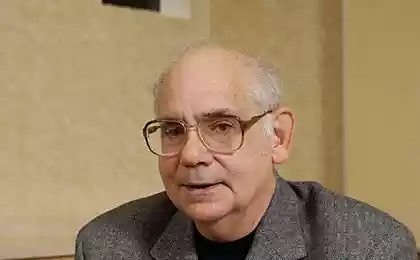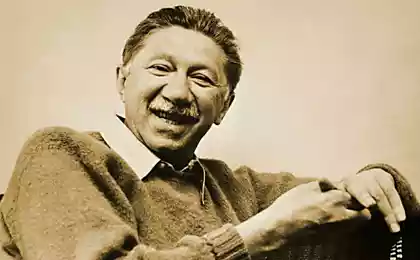545
As the ratings of other affect your life
Question what is the impact on identity, its formation and development, the evaluation of "other" people, society, cultural traditions, ethical norms actively discussed and debated in psychology.
In humanistic psychology, this issue was considered in the works of A. Maslow, K. Rogers, V. Frankl, in Russian psychology L. S. Vygotsky was engaged in the study of emotional-motivational sphere of socialization, generalizing and unifying these authors, the work created by Y. B. Gippenreiter.
Maslow: Every person (with rare exceptions associated with pathology) is constantly in need of recognition, in a stable and usually high evaluation of their merits.
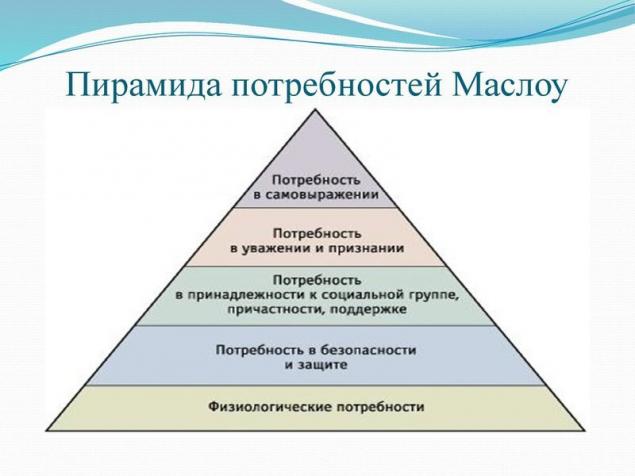
Satisfaction assessment needs, breeds respect for the individual's sense of self-confidence, sense of self-worth, strength, adequacy, a sense that it is useful and necessary in this world. Unmet demand, by contrast, gives him a sense of humiliation, weakness, helplessness, which in turn are a breeding ground for depression trigger compensatory mechanisms.
This need "recognition" of Maslow is considered a basic, necessary for human existence, for its healthy development.
And indeed examples can be found in everyday life: the happy student who passed a difficult test, probably in a hurry to inform your family and friends, and his satisfaction from the result, enhanced by the praise of these people.

In the case when these loved ones, because of any cause, intrinsic qualities, etc., do not react positive evaluation of the overall satisfaction of the student is reduced.
In our culture there is a "Principle of carrot and stick",which is actively used from generation to generation in the education of children:praise, gift – act as positive reinforcement (the carrot) if successful, and the punishment, abuse, bans as negative "reinforcement" (whip) in case of failure.
The child becomes accustomed to these reactions of the adult, they become ingrained in his psyche, and each time in similar situations, he's waiting similar behavior of the adult.
Adults (parents, teachers) inspire the child the basic cultural traditions, ethical norms, rules of behavior, rules of obtaining and mastering new knowledge – create a framework in which supposed to live educated person, in the data culture, the place and time.
In this regard, the child (growing, developing person) arise emotional-motivational problems, for example: "At school are multiplying, the child solves the same task using addition and gets the correct answer. The teacher puts the two, for the fact that the child has not mastered a new way.The child receives a negative assessment of its work in connection with it he reduced motivation "decided correctly, and the rating bad."

Also here you can include examples of phrases parents "So big, and'll never learn how exactly to write, to count correctly, etc." In all these cases, a negative rating reduces the motivation of achievement. The question arises "whether to estimate in General? Ask what kind of framework?".
Maslow in his later works, samoustraniajutsia dedicated individuals, suggests that they are characterized by such traits as: "independence from the environment, independence and self-sufficiency".
Samaccount obey "...primarily internal, and not the social determinants of environment.
These determinants are the laws of their own inner nature, their opportunities and abilities, talents, their hidden resources, their creative impulses, their needs to know themselves and to become more whole people, to better understand who they really are, what they really want, what is their mission or what should be their fate.
Since they are less dependent on other people, they are less afraid, less lying, less hostile towards them, less in need of their praise and affection. They are less concerned with honor, prestige and awards."
Samaccount beyond the culture in which they live, they are subject to more universal rules and norms, the main thing for them is self-assessment and not the opinions of others. They are characterized by greater resistance to negative influences of society: tragedy, stress, deprivation. Samaccount are motivated by internal factors, not external.
A similar opinion is shared with Maslow, K. Rogers, based on the practice of psychotherapy, he suggests that society is a kind of pressure for a person who nurtures conformity, causes to be "those who want to see the other" prevent him from being "who he really is." Many clients K. Rogers after a course of treatment has aware of this influence, was aware of its falsity, aware that most of the rules are defined outside themselves, and imposed on them by external factors (people), understand that their "intention or purpose are worth nothing, even if they followed them all my life until now". After this insight people often come to understand "what they really need to do, not what they should do."

V. Frankl was engaged in the studyof the meaning of human life, said it is "the primary driving force in his life."The meaning of life for man is something "worth living for", the meaning of life is personal for each person. In the process of searching for the meaning of life a person can face such difficulties as noagenda neuroses that arise in connection with the discrepancy of human values, the values that are accepted in society. And here again we see the problem of the influence of society on personality. Frankl says that a voltage, which in this case experiences useful for further development, the meaning of existence and psychological health.
As an example of rethinking the values of life, in favor of universal, sloznosti you can give an example from the novel of L. N. Tolstoy's "War and peace" when the wounded Andrei Bolkonsky looks at the sky and realize how small and insignificant was all his life meanings and values, in comparison to "high, endless sky and running on it with clouds." For the hero of Tolstoy in this time, a naturalness in its purest form, beauty, and immensity of being itself, which for him symbolizes, like the first time seen the sky.
In his works, Maslow, Rogers, Frankl say about the changes already occurring in adults, and whether it is possible to raise a child so that he did not have to experience the emotional and motivational difficulties the impact of society on itself.
The answer to this question is given such as: "Summerhill – education freedom" Alexander Neill, and "to Communicate with the child?" Y. B. Gippenreiter. Alexander Neill says about freedom of choice of the child in their self-determination, thus there is "an amazing flourishing of healthy vitality of the child." This provision Neill echoes one of the paths to self-actualization Maslow that in every point there is a choice of progressive and regressive, and the choice of progressive paths leads to personal growth.
In his book, Y. B. Gippenreiter, based on humanistic psychology, shows how you can come to an understanding not only with children but also with adults.Regarding impact assessments and society simultaneously raises the position of non-judgment, total acceptance of the person as he is. In this case, encouraged freedom of choice, supported by a human decision, it is not assessed and does not "fit" under a certain framework of traditions. Besides, adults need to master many more skills with the child, but, applied to the problem of impact evaluations "others" of society – judgmental acceptance is a major factor that can help in solving this problem. published
P. S. And remember, only by changing their consumption — together we change the world! ©
Source: www.psyarticles.ru/view_post.php?id=597
In humanistic psychology, this issue was considered in the works of A. Maslow, K. Rogers, V. Frankl, in Russian psychology L. S. Vygotsky was engaged in the study of emotional-motivational sphere of socialization, generalizing and unifying these authors, the work created by Y. B. Gippenreiter.
Maslow: Every person (with rare exceptions associated with pathology) is constantly in need of recognition, in a stable and usually high evaluation of their merits.

Satisfaction assessment needs, breeds respect for the individual's sense of self-confidence, sense of self-worth, strength, adequacy, a sense that it is useful and necessary in this world. Unmet demand, by contrast, gives him a sense of humiliation, weakness, helplessness, which in turn are a breeding ground for depression trigger compensatory mechanisms.
This need "recognition" of Maslow is considered a basic, necessary for human existence, for its healthy development.
And indeed examples can be found in everyday life: the happy student who passed a difficult test, probably in a hurry to inform your family and friends, and his satisfaction from the result, enhanced by the praise of these people.

In the case when these loved ones, because of any cause, intrinsic qualities, etc., do not react positive evaluation of the overall satisfaction of the student is reduced.
In our culture there is a "Principle of carrot and stick",which is actively used from generation to generation in the education of children:praise, gift – act as positive reinforcement (the carrot) if successful, and the punishment, abuse, bans as negative "reinforcement" (whip) in case of failure.
The child becomes accustomed to these reactions of the adult, they become ingrained in his psyche, and each time in similar situations, he's waiting similar behavior of the adult.
Adults (parents, teachers) inspire the child the basic cultural traditions, ethical norms, rules of behavior, rules of obtaining and mastering new knowledge – create a framework in which supposed to live educated person, in the data culture, the place and time.
In this regard, the child (growing, developing person) arise emotional-motivational problems, for example: "At school are multiplying, the child solves the same task using addition and gets the correct answer. The teacher puts the two, for the fact that the child has not mastered a new way.The child receives a negative assessment of its work in connection with it he reduced motivation "decided correctly, and the rating bad."

Also here you can include examples of phrases parents "So big, and'll never learn how exactly to write, to count correctly, etc." In all these cases, a negative rating reduces the motivation of achievement. The question arises "whether to estimate in General? Ask what kind of framework?".
Maslow in his later works, samoustraniajutsia dedicated individuals, suggests that they are characterized by such traits as: "independence from the environment, independence and self-sufficiency".
Samaccount obey "...primarily internal, and not the social determinants of environment.
These determinants are the laws of their own inner nature, their opportunities and abilities, talents, their hidden resources, their creative impulses, their needs to know themselves and to become more whole people, to better understand who they really are, what they really want, what is their mission or what should be their fate.
Since they are less dependent on other people, they are less afraid, less lying, less hostile towards them, less in need of their praise and affection. They are less concerned with honor, prestige and awards."
Samaccount beyond the culture in which they live, they are subject to more universal rules and norms, the main thing for them is self-assessment and not the opinions of others. They are characterized by greater resistance to negative influences of society: tragedy, stress, deprivation. Samaccount are motivated by internal factors, not external.
A similar opinion is shared with Maslow, K. Rogers, based on the practice of psychotherapy, he suggests that society is a kind of pressure for a person who nurtures conformity, causes to be "those who want to see the other" prevent him from being "who he really is." Many clients K. Rogers after a course of treatment has aware of this influence, was aware of its falsity, aware that most of the rules are defined outside themselves, and imposed on them by external factors (people), understand that their "intention or purpose are worth nothing, even if they followed them all my life until now". After this insight people often come to understand "what they really need to do, not what they should do."

V. Frankl was engaged in the studyof the meaning of human life, said it is "the primary driving force in his life."The meaning of life for man is something "worth living for", the meaning of life is personal for each person. In the process of searching for the meaning of life a person can face such difficulties as noagenda neuroses that arise in connection with the discrepancy of human values, the values that are accepted in society. And here again we see the problem of the influence of society on personality. Frankl says that a voltage, which in this case experiences useful for further development, the meaning of existence and psychological health.
As an example of rethinking the values of life, in favor of universal, sloznosti you can give an example from the novel of L. N. Tolstoy's "War and peace" when the wounded Andrei Bolkonsky looks at the sky and realize how small and insignificant was all his life meanings and values, in comparison to "high, endless sky and running on it with clouds." For the hero of Tolstoy in this time, a naturalness in its purest form, beauty, and immensity of being itself, which for him symbolizes, like the first time seen the sky.
In his works, Maslow, Rogers, Frankl say about the changes already occurring in adults, and whether it is possible to raise a child so that he did not have to experience the emotional and motivational difficulties the impact of society on itself.
The answer to this question is given such as: "Summerhill – education freedom" Alexander Neill, and "to Communicate with the child?" Y. B. Gippenreiter. Alexander Neill says about freedom of choice of the child in their self-determination, thus there is "an amazing flourishing of healthy vitality of the child." This provision Neill echoes one of the paths to self-actualization Maslow that in every point there is a choice of progressive and regressive, and the choice of progressive paths leads to personal growth.
In his book, Y. B. Gippenreiter, based on humanistic psychology, shows how you can come to an understanding not only with children but also with adults.Regarding impact assessments and society simultaneously raises the position of non-judgment, total acceptance of the person as he is. In this case, encouraged freedom of choice, supported by a human decision, it is not assessed and does not "fit" under a certain framework of traditions. Besides, adults need to master many more skills with the child, but, applied to the problem of impact evaluations "others" of society – judgmental acceptance is a major factor that can help in solving this problem. published
P. S. And remember, only by changing their consumption — together we change the world! ©
Source: www.psyarticles.ru/view_post.php?id=597
